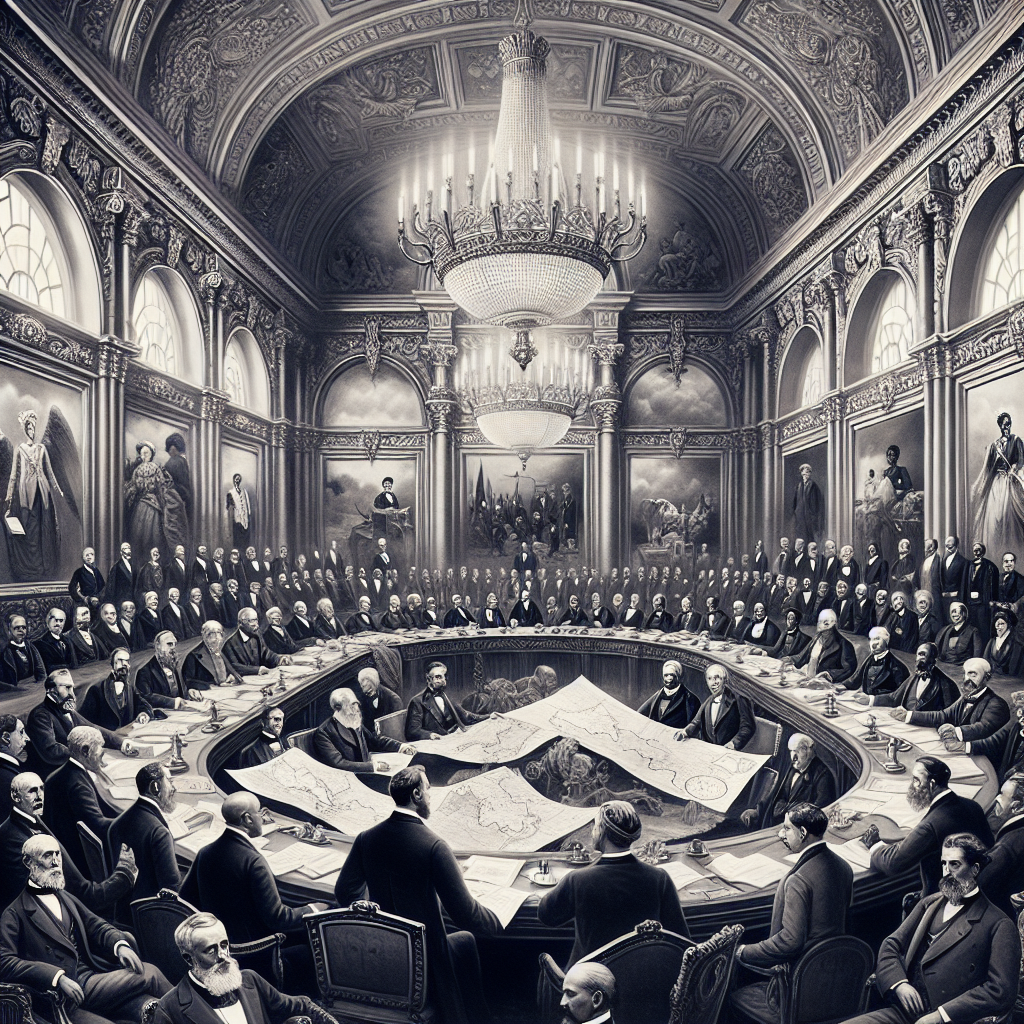The Berlin Conference of 1884-1885: The Scramble for Africa Unveiled
The Berlin Conference of 1884-1885: The Scramble for Africa Unveiled
Introduction to the Berlin Conference
The Berlin Conference of 1884-1885 was a pivotal moment in history, marking the formalization of the “Scramble for Africa.” This international meeting, held in Berlin, Germany, was orchestrated by European powers to establish rules for the colonization and trade in Africa, fundamentally reshaping the continent’s political landscape.
Key Objectives of the Conference
The conference aimed to address the growing competition among European nations over African territories. The primary objectives included:
- Establishing guidelines for the annexation of African land.
- Ensuring free trade along the Congo and Niger rivers.
- Preventing conflict among European powers over African territories.
Major Participants and Their Interests
The conference was attended by representatives from major European powers, including:
- Germany: Hosted the conference and sought to expand its colonial empire.
- France: Aimed to solidify its influence in West and Central Africa.
- Britain: Focused on securing key trade routes and territories in Southern and Eastern Africa.
- Belgium: King Leopold II sought personal control over the Congo Free State.
Outcomes and Impact on Africa
The Berlin Conference resulted in the partitioning of Africa, with little regard for indigenous cultures and societies. Key outcomes included:
- The formalization of colonial borders, often splitting ethnic and cultural groups.
- The establishment of the Congo Free State under King Leopold II’s personal rule, leading to severe exploitation.
- The acceleration of European colonization efforts across the continent.
Legacy and Historical Significance
The Berlin Conference left a lasting legacy on Africa, with effects that are still felt today. It set the stage for decades of colonial rule, economic exploitation, and cultural disruption. The arbitrary borders drawn during the conference continue to influence African geopolitics and inter-ethnic relations.
Conclusion
The Berlin Conference of 1884-1885 was a landmark event that unveiled the “Scramble for Africa,” leading to the rapid colonization of the continent by European powers. Its outcomes reshaped Africa’s political boundaries and had profound implications for its people, setting the stage for future conflicts and struggles for independence. Understanding this historical event is crucial to comprehending the complex dynamics of modern Africa.




































